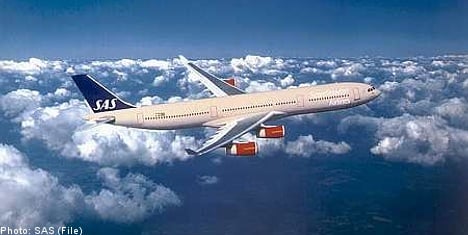The agency has reviewed the operations of 18 airlines and travel agencies, with the focus placed on consumer rights in respect of delays, cancellations, personal injury, damaged or missing baggage, and when passengers in possession of a valid ticket are refused entry.
“The goal has been to see how passengers’ rights are respected,” Anna Norlén, a lawyer for the Consumer Agency said.
Some of the findings in the report included companies which referred to laws that no longer applied, and others which routinely issued disclaimers against liability for delays, damage to luggage and personal injury.
“Furthermore there are cases when, for example, no clarification is made over who is the responsible party and what this means for the consumer,” Norlén said.
The problems naturally vary in scope between individual companies but the Consumer Agency has found that all have some deficiencies and concluded that the situation has to be considered an industry-wide problem.
The agency has now requested that companies review their conditions and follow applicable legislation, even if the law is sometimes complex and that changes occur.
“This is a legitimate demand to make of the companies,” Norlén said.
But several airlines have responded to the report by insisting that it does not clarify which companies have violated the rules.
Several told the TT news agency that they would return with comments once they had been given a chance to digest the contents of the report.
Jan Nyquist, head of the Consumer Agency’s legal department, argued however that it should be easy for companies to determine whether they made a mistake.
“It should not take long to check if requirements are being met,” he said.
The Consumer Agency plans to offer the companies a grace period to improve the situation, and will later follow up on the report to check if the companies have cleaned up their act.
The next course of action if companies are found to have enduring deficiencies in their terms and conditions, will be for the agency to initiate enforcement cases against the companies in question.
The airlines included in the report are: Avion Express (no longer serving the Swedish market), Blekingeflyg, City Airline, Direktflyg, Flysmåland, Golden Air, Gotlandsflyg, Höga Kusten Flyg, Kalmarflyg, Kullaflyg, Malmö Aviation, Nextjet, Norwegian Air Shuttle, SAS, Skyways, Sundsvallsflyg, Umeåflyg, and Östersundsflyg (no longer serving the Swedish market).



 Please whitelist us to continue reading.
Please whitelist us to continue reading.
Member comments